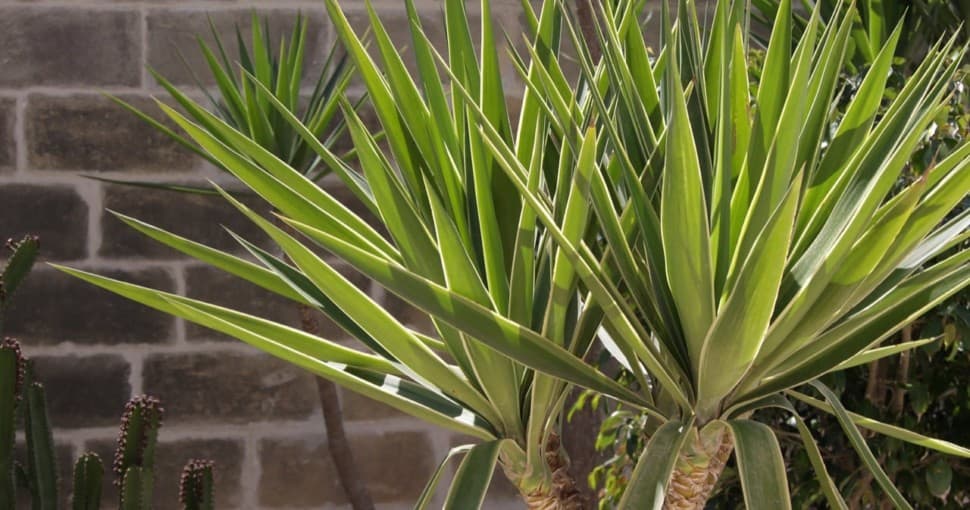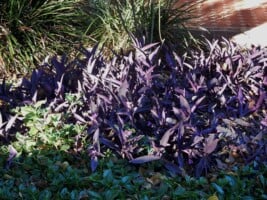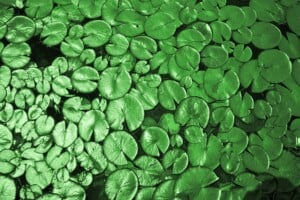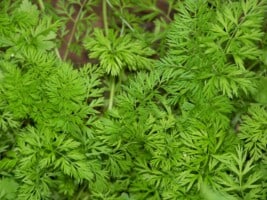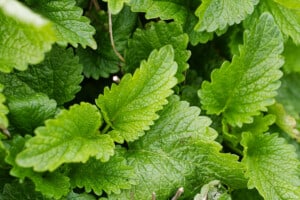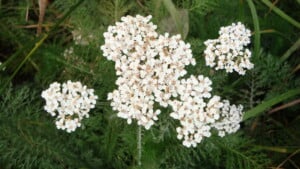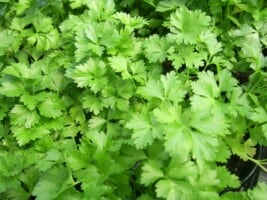If you have ever wondered if your striking ornamental yucca plant is poisonous, then there is some good news and some bad news. The great news is that it is not hugely harmful to humans – the bad news is that the plant is not pet-friendly.
Contents
Ornamental yucca plants are not poisonous to humans, and some species have edible seeds, flowers, fruits, or stems. Yucca plants are significantly toxic to dogs and cats. The plants contain steroidal saponins which are not easily digested. Significant injury can occur by being poked by a yucca leaf.
Anyone who has ever owned a yucca plant will know that they seem to be indestructible. No matter how many times you cut off the stem to make it shorter or even dig them out, these resilient desert plants keep coming back. Although the plant isn’t poisonous for humans, it still holds some risk in terms of injury.
Are Yucca Plants Poisonous To Humans?
Yucca plants that have taken root in a garden can seem indestructible and can reach gigantic heights. One often needs to cut them down to size, so working in close contact with them is inevitable.
Yucca plants are native to arid regions of North America and the Caribbean. They have become popular worldwide as ornamental plants that can be kept indoors and outdoors. Like many desert plants, tough, fibrous leaves jut out menacingly from all sides to create a visually striking yet formidable landscape feature.
For centuries, yucca plants have found applications in hygiene products, especially soap making. Yucca plants have also been used as a food additive, but its most significant role has been as a treatment in alternative medicines.
Yucca contains saponins which are bitter-tasting plant chemicals that are usually toxic. However, if you do happen to ingest some sap from a yucca while pruning it, in all likelihood, the worst thing about the experience will be the extremely bitter taste.
Yucca is not poisonous to humans, and ingestion of this plant has only ever been associated with some minor cases of nausea and diarrhea. People with plant sensitivity may develop a mild skin rash after contact with a yucca plant.

The most dangerous threat from a yucca plant lies in its shape of leaves. A jab from a spikey leaf can cause significant pain and discomfort. Fortunately, in most cases, yucca leaves don’t leave the sharp tip inside the flesh, and the blade can be removed cleanly. However, wounds can be deep, and the plant could have transported other toxins into the layers of the skin that will cause infection.
Among gardeners, we know that one of the most dangerous times to work with yucca plants is when they have been cut off and dried out. The sharp, sword-like leaves become rigid, and the leaves are no longer flexible. At this time, puncture wounds from the tips are more likely to occur while clearing or removing dead leaves from the lower part of the stem.
If any part of a yucca plant pierces the skin, it is always a good idea to consult a doctor. Besides dirt and bacteria from the outside, saponins inside the plant can be pressed deep under the skin. This can cause uncomfortable inflammation that can last for several weeks.
Pokes from yucca plants can be deceptive because the puncture wounds usually close quickly, and there is often very little sign of blood on the surface. The area can quickly start swelling and create a pocket for infection.
Are Yucca Plants Poisonous To Pets?
Yucca plants contain steroidal saponins. These saponins would protect the plant from fungi and plant insects. One of the many reasons yuccas are popular garden and house plants is because they are highly resistant to plant diseases.
While yucca saponins are not toxic if ingested in small doses by humans, they have a more severe effect on dogs and cats. The Pet Poison Helpline indicates that pets may show symptoms of drooling, vomiting, weakness, appear uncoordinated, and dilation of pupils can present in cats.
However, the chances of a pet tucking in and eating large amounts of yucca plant are very low. The taste is bitter, and the leaves are tough. However, curious puppies are famous for chewing almost anything they can find.
Pet owners need to remain vigilant. If they suspect any yucca plant has been ingested or observe any suspicious symptoms, a veterinarian should be consulted immediately.
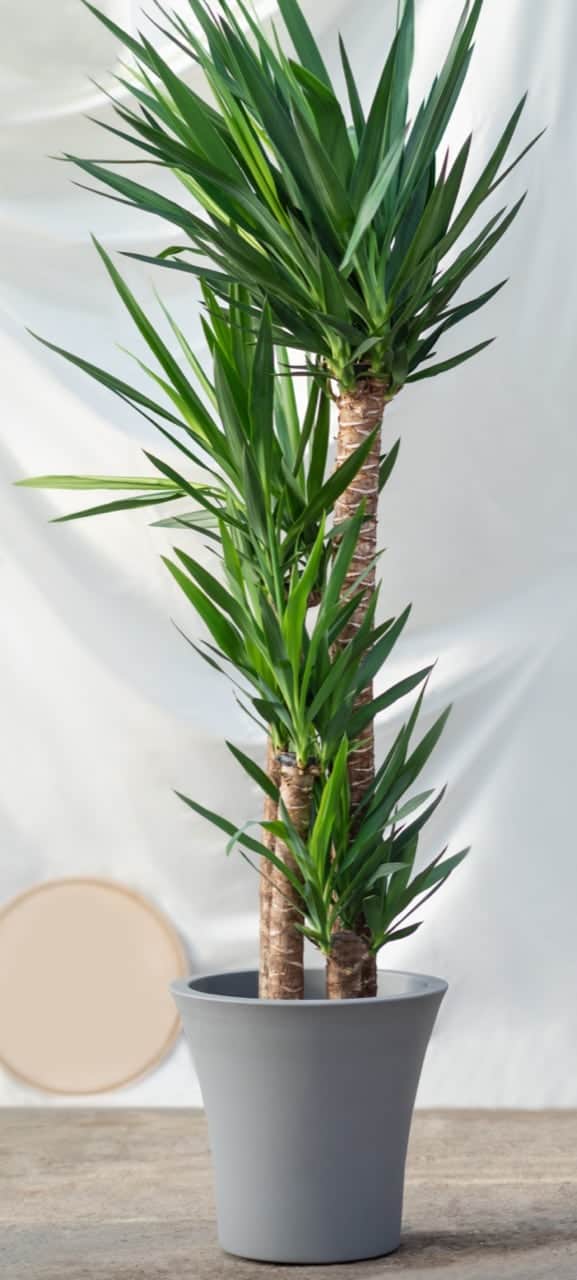
Animals are also in danger of being pricked by the sharp sword-like leaves. If you have a low-growing variety of yucca, special attention needs to be given to your pet while playing around the plant, as they can easily misjudge the length of the leaves and get poked in the eye.
Treatment for jabs from a yucca leaf for pets is similar to humans. Any puncture wound needs to be carefully monitored in case of possible infection.
Are Yucca And Cassava The Same Thing?
If you research yucca plants, you will inevitably find information about how the root is a popular starch, and you might even find cooking instructions and recipes. This can be confusing because while ornamental yucca plants do have a few edible parts, they are not widely enjoyed and are more suitable for making soap than eating for dinner.
The confusion in information came about because of similar words given for entirely different plants. The Yucca plant is an ornamental desert plant native to the Americas. Yuca root, or cassava, belongs to an entirely different family of plants native to Brazil and tropical regions.
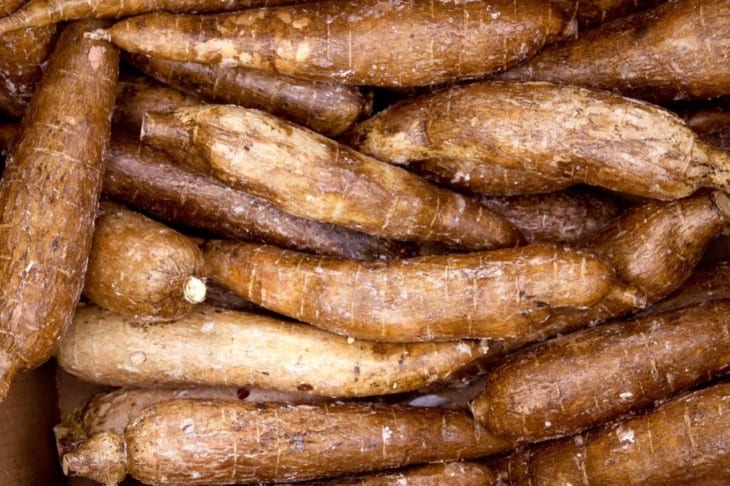
Over time, the words yucca and yuca have become mixed up. They are entirely different varieties of plants. Eating the roots of an ornamental yucca plant will undoubtedly leave you with a terrible taste and will probably also result in an upset stomach. However, yuca root, or cassava, is a widely used starch that is enjoyed in many parts of the world.
Precautions To Avoid Injury From Yucca Plants
Although yucca plants are not poisonous, they can cause nasty injuries if they puncture your skin. When working with these gorgous spikey desert plants, always wear thick protective gloves and trim the lower leaves off if you have children or pets that may run into the plant.
In addition, while pets don’t usually select yucca leaves to chew because they are very bitter, they must be provided with alternative plants that are safe to chew. Indoor cats are specifically at risk of chewing any available plant material. Simply providing a small pot of cat grass that your indoor kitty can enjoy will ensure that your yucca plant never becomes a target – except maybe to play with!

